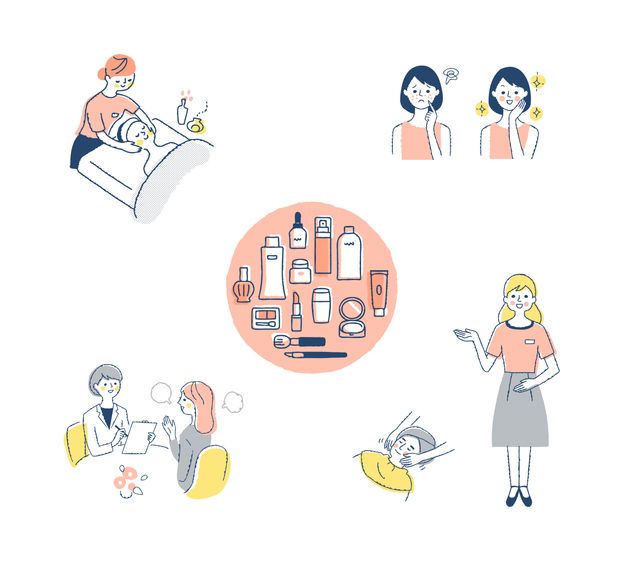
Book Now to Experience
Acne Treatment
1 Minute Self-Registration
Date should not be before minimal date
Author: Leila Tan|Updated: 23 July 2024
Acne can cause skin problems which affect about 80% of people and is common in all parts of our bodies. It is easy for painful pimples to become annoying or a nuisance to get over, so many people would seek a solution to end the pimple tortures. While health claims say there are many effective acne treatments available, few are scientifically proven effective…

1
Why Wasn't It Effective? You Must Know Where Your Acne Comes From, Literally.
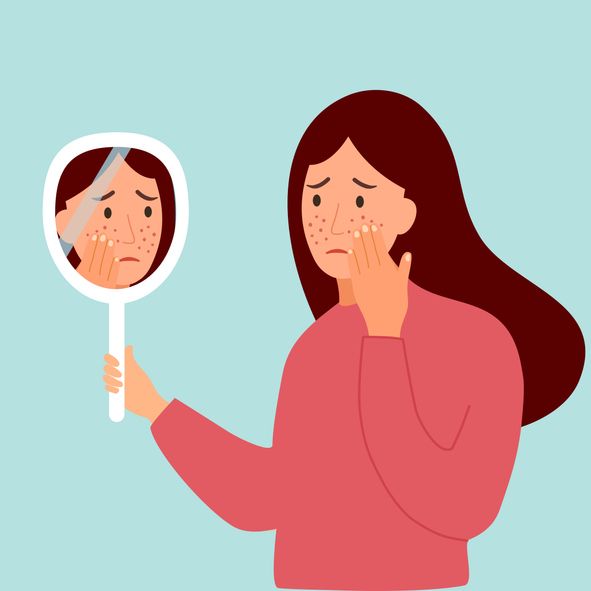
Acne is also called acne vulgaris, which is a common skin condition that happens when pores get clogged. It usually looks like whiteheads, blackheads, cysts, or nodules. Acne vulgaris can happen to people of any age, but it happens most often in teenagers. It usually shows up on the face, but it can also show up on places like the back, chest, and neck. Be it severe acne or moderate acne, one must know what type of acne you have in order to treat them more efficiently.
Genetic
Acne can run in families because of genes. If your parents had skin problems that you now have, your skin may be more likely to break out than someone whose genes don't make them more likely to do so.
Changes in hormones
Hormones are one of the most common reasons why men and women both get acne. It can cause both physical and mental distress to people who suffer from it. Depending on the severity of the acne and individual variables, there are a number of treatments available. Frequently, underlying health conditions such as polycystic ovary syndrome (PCOS), thyroid problems, or adrenal dysfunction are associated with hormonal acne. Asides from that, hormones like testosterone or oestrogen are too high or out of balance, skin cells can make too much oil, which can clog pores and cause more acne too.
Stress
Acne caused by stress is a skin condition that occurs when your skin is under mental or emotional strain. This type of acne typically appears as red, swollen, and inflamed skin. While it can appear anywhere on the body, it is most common on the face and neck. Long term stress usually weakens the body's natural defences by changing hormone levels and decreasing blood flow to the skin's surface cells. This makes it easier for the skin to become irritated, which leads to inflammation and acne breakouts. Also, stress breaks down the skin's natural protective barriers, which leads to more bacteria on the skin's surface, which makes any existing acne and flare ups worse.
Diet
Acne caused by diet is a skin problem that usually happens when you eat too much or too little of certain foods. Most of the time, this kind of acne is caused by diets that are low in important vitamins and minerals or are high in processed or sugary foods. To treat acne caused by diet, you need to change your diet so that you eat more foods that are high in nutrients and less foods that are low in nutrients.
Some people with sensitive skin get pimples after eating greasy foods like burgers or pizza because they eat too much fat-filled grease, which clogs up their pores and makes their skin red and oily over time if they do this often enough for long enough.
Poor skincare
Not taking good care of your skin. If you don't wash your face enough or put on too much makeup, for example, you're more likely to get skin problems like acne. Excessive sweating or friction from clothing or sports equipment can also cause breakouts if sweat mixes with oil on the skin's surface and blocks pores with dirt and bacteria.

2
Here's How To Take Off Your Acne Blemishes Based On Your Condition:
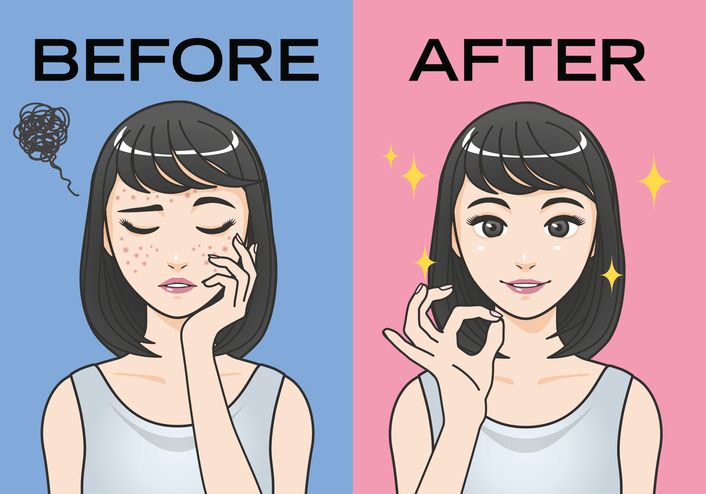
Problems associated with acne, such as cysts and scars, can be particularly distressing for modern women, who generally strive for flawless complexions. Lasers, chemical peels, and microdermabrasion are effective treatments for acne scars, but for those who are still unsure of the best option, here are some things you can do every day to improve the appearance of your skin.
If you have hereditary pimples:
Regarding the treatment of genetic acne, it is essential to visit a board-certified dermatologist. Due to the underlying genetic component, hereditary acne might be more difficult to treat than other types. By an accurate medical diagnosis and individualised treatment plan, board-certified dermatologists may help discover the underlying cause of your acne and provide a specific skin care regimen to control its symptoms. Antibiotics, retinoids, or hormone therapies may be provided, depending on the severity of the illness, to minimise present outbreaks and prevent future outbreaks. In addition, board-certified dermatologists may recommend lifestyle changes, such as avoiding particular skin care products or dietary habits that may be aggravating your problem. It is vital to consult a board-certified dermatologist in order to determine the most effective treatment for inherited acne.
Many topical therapies can reduce the appearance of genetic acne by unclogging pores and controlling oil production on the surface of the skin. Creams containing benzoyl peroxide or salicylic acid that are marketed over-the-counter are beneficial for treating mild to moderate acne or outbreaks, but they may not be potent enough for more severe cases; prescription medications may be necessary in such cases. In addition, cleaning your face gently with noncomedogenic products can help remove debris and bacteria without further clogging pores.
If you suffer hormonal acne:
Just like hereditary acne, to discover the underlying cause of hormonal acne, a proper diagnosis must first be performed. This may involve blood testing or additional medical examinations.
Once a diagnosis has been made, treatment choices differ based on the type and degree of acne that is present. OTC drugs (such as benzoyl peroxide) can aid in reducing inflammation and bacteria in milder cases of hormonal acne. Doctors or dermatologists may recommend topical creams, antibiotics, oral contraceptives, or spironolactone if over-the-counter treatments fail to offer relief. These drugs may be used individually or in combination to manage severe hormonal acne outbreaks.
In severe cases of hormonal acne, lifestyle adjustments are recommended in addition to drug treatment. For those with severe hormone-related acne, a balanced diet low in sugar and dairy products can help reduce inflammation and prevent breakouts. In addition to regulating hormones, physical activity reduces stress and improves blood flow. In addition, drinking plenty of water helps eliminate toxins from the body, which can lead to skin disorders like severe hormonal acne.
To control the outbreak caused by hormonal changes or by increase in testosterone or androgens, it is essential to maintain hormonal balance with a healthy diet and regular exercise. Consuming meals rich in zinc and vitamins A, C, and E is advantageous for skin health. Moreover, exercise helps balance hormones and eliminate toxins from the body.
For those who gets pimples when stressed:
When a person experiences an increase in stress hormones such as cortisol, it can cause their skin to produce excess sebum (oil). This can clog pores and create an ideal environment for bacteria to grow. As this bacteria grows, it causes inflammation in the skin leading to breakouts of acne.
Fortunately, there are several ways to get rid of pimples fast caused by stress. First, reducing stress levels should be a priority if you want to improve your skin health. Regular exercise (such as yoga or running) has been shown to reduce stress levels and can help alleviate facial skin issues such as acne caused by stress. Additionally, getting enough restful sleep each night helps restore the body's balance so that skin cells may repair themselves from any damage or irritation.
In addition to lifestyle changes, there are also topical treatments available for treating acne caused by stress. Over-The-Counter medications containing benzoyl peroxide help target excess oil production while reducing inflammation in the skin. If these treatments do not work alone then oral antibiotics may be prescribed by your doctor or dermatologist which have been shown to be effective in treating severe forms of acne caused by stress.
Finally, using gentle skincare products and avoiding harsh cosmetic products can also help reduce breakouts associated with acne caused by stress and maintain healthy skin overall.
When your diet gives you acne:
A low glycemic diet full of fresh fruits and vegetables, lean proteins, healthy fats, and whole grains should be incorporated into the skin care daily routine as these foods are low in sugar and can help regulate hormones which can contribute to reducing acne breakouts. Also, cutting back on or getting rid of dairy has been shown to reduce inflammation and make the skin healthier overall. Dairy products like cheese, yoghurt, butter, cream cheese, and ice cream are known to cause acne breakouts, so it's best to avoid them if your acne is often caused by what you eat.
In addition to eating a balanced diet, taking supplements can help reduce inflammation and keep hormones in check, both of which are linked to acne. Diet-related acne is easier to treat with zinc because it helps reduce inflammation and speeds up the healing process of skin cells that have been damaged. Taking a zinc supplement every day can help the body store more of this mineral, which can improve the health of the skin over time.
Diet-caused acne can be treated by making changes to your diet and taking supplements that are high in nutrients like zinc. But it's important to keep in mind that these treatments usually require patience because you might not see results right away. However, if you stick with them, your skin will look better over time.
To those who did not do their skin care properly:
The use of harsh cleansers that strip the skin of its natural oils or the use of comedogenic cosmetics can block pores and cause severe acne, resulting in worse skin conditions. In order to get rid of severe acne caused by bad skin care products and makeup, you must wash your face every day with a gentle soap or cleanser.
Use water that's about room temperature and don't scrub your face too hard. Toners with salicylic acid can help open up clogged pores, cut down on oiliness, and get rid of any leftover dirt or makeup. Salicylic acid can also help reduce acne-related redness and reduce swelling too. Also, look for makeup that doesn't clog pores and contains zinc oxide. This can help prevent future breakouts. Oil-based makeup products can make acne worse if you already have acne. Lastly, it's important to get enough sleep. Getting enough sleep helps keep hormones in balance, which reduces acne-related skin inflammation too.
Read More

3
Treat Pimples Everywhere: DIY Face Mask At Home With Essential Oils
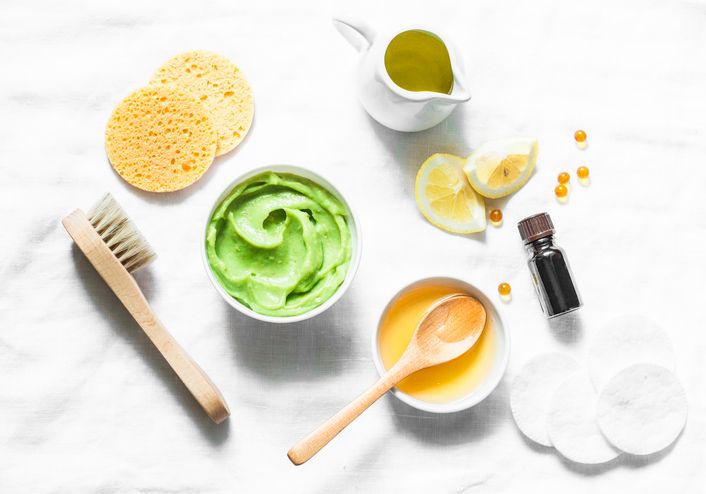
A face mask made with essential oil is an easy but soothing method for treating acne-prone skin, but you need to remember that this is not a cure to get rid of your pimples fast. Essential oils have anti-inflammatory and other antibacterial properties, qualities that can aid to reduce pimples and other skin disorders.
Prepare the following ingredients to create your own face mask:
2 tablespoons of plain yoghurt 1 teaspoon of honey 5 drops of green tea tree oil 5 drops of lavender oil
Steps:
1. In a bowl, combine two tablespoons of plain yoghurt and one teaspoon of honey until a thick paste forms. Then, add 5 drops of tea tree oil and 5 drops of lavender oil to the mixture. Mix the mixture until all of the ingredients are combined. 2. Once the face mask is prepared, apply a little layer to your acne-prone skin using circular motions. Let sit for fifteen to twenty minutes before washing with tepid water. Use this mask twice weekly for optimal results.
Essential oils like green tea tree oil are potent and can be irritating if used in excess or without sufficient dilution; therefore, acne-prone skin should be treated with attention when applying them. Rinse the face mask off promptly and discontinue use if irritation occurs during application or reapplication.

4
How Can I Get Rid of Pimples Fast? Acne Treatment From New Beauty Might Have The Answer.
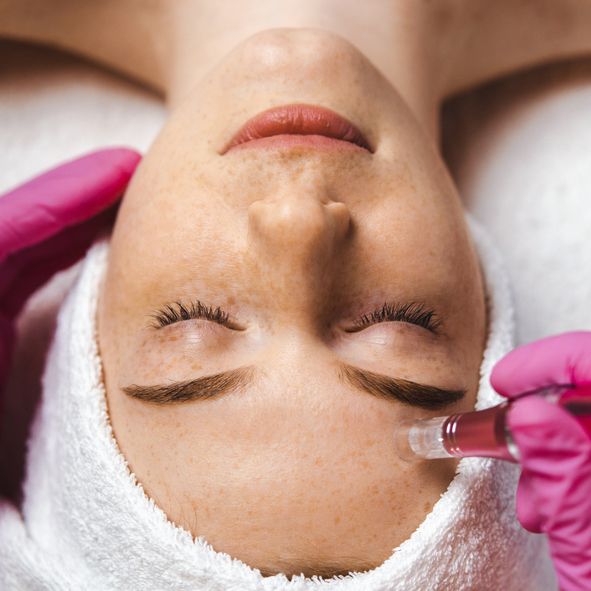
An individual's confidence can take a serious hit from the psychological trauma that acne scars, active acne, pimples, whiteheads, and blackheads all represent. Acne creams, chemical peels, oral medicine, and other acne treatments have come a long way in addressing acne breakouts, but few of them provide a permanent solution to take off acne.
Thankfully, the Acne Treatment from New Beauty aims to clear up oily, blemish-prone skin. Acne, blackheads, whiteheads, pockmarks, enlarged pores, dry skin, acne scars, and a lacklustre complexion. In order to keep pores from being clogged in the future, it uses a combination of dual spiral suction and drainage technology to remove excess oil and dead skin cells.
In addition, it employs a medical-grade moisturising serum that can penetrate deep into the skin to hydrate and nourish the skin tissues, calming acne-prone skin. It also reduces inflammation and relaxes the sebaceous glands to stop excessive oil production.
The best part is that this treatment doesn't include any invasive procedures at all, including but not limited to: surgery, incisions, injections, topical acne treatments, or oral antibiotics. Acne outbreaks, scarring, and other forms of acne will gradually improve as treatment continues. At the end of the day, you will be able to get rid of pimples and have skin that is radiant, plump, moisturised, healthy, and has a less greasy sheen. If you are bothered by the need of popping pimples every day and wish to have clearer skin in no time, consider dropping by New Beauty today to regain glowing skin!
FAQ
Can home remedies or natural remedies cure mild acne?
Not really. Natural remedies are unlikely to help your skin because they don't address the underlying cause of acne. Spots won't be 'cured' by any of them, but you may notice that some reduce inflammation.
What has anti-inflammatory effects on the skin?
There are numerous common skincare components that possess anti-inflammatory properties. You can seek out products containing vitamin C, vitamin D, vitamin E, niacinamide, aloe vera, witch hazel, turmeric, or calendula extract, among others.
How salicylic acid and benzoyl peroxide help with adult acne?
Both salicylic acid and benzoyl peroxide are designed to remove the layer of dead skin cells that forms over the skin's surface after a shower or bath. This helps prevent breakouts by keeping pores clear.
Is it painful to undergo Acne Treatment?
The answer is no. The Acne Treatment is a mild skin resurfacing procedure that does not involve cutting or scraping at the skin. There is no pressing, poking, squeezing, or picking at the skin, and consequently no wound and minimal pain, because no sharp instruments like needles and scrubbing are used in the operation.
Do I need to wait for my skin to heal after the Acne Treatment?
There is no downtime associated with using the Acne Treatment because it is a non-invasive method of eliminating acne that does not leave any healing sores. Instead, you can proceed the rest of the day as usual.

Book Now to Experience
Acne Treatment
1 Minute Self-Registration
Date should not be before minimal date
Recommended Articles
COPYRIGHT© NEW BEAUTY MANAGEMENT LIMITED 2025. ALL RIGHT RESERVED.


